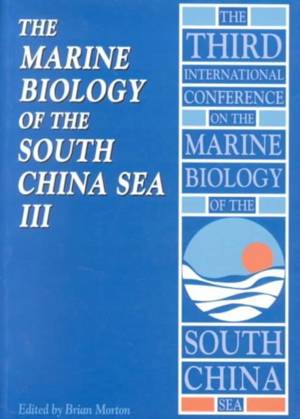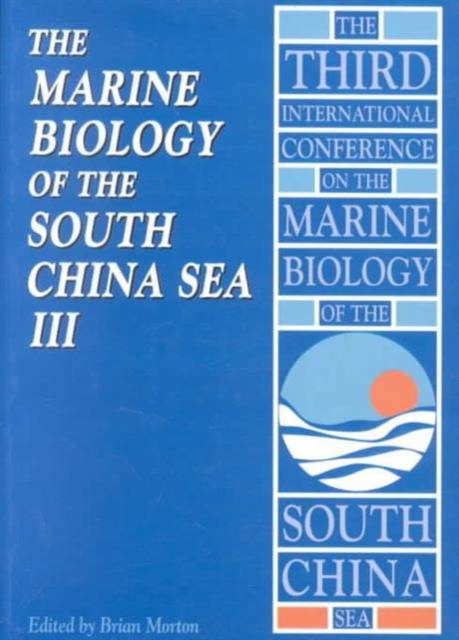
- Retrait gratuit dans votre magasin Club
- 7.000.000 titres dans notre catalogue
- Payer en toute sécurité
- Toujours un magasin près de chez vous
- Retrait gratuit dans votre magasin Club
- 7.000.0000 titres dans notre catalogue
- Payer en toute sécurité
- Toujours un magasin près de chez vous
83,95 €
+ 167 points
Description
The first conference on the Marine Biology of the South China Sea was convened in Hong Kong in 1990, to celebrate the opening of the Swire Institute of Marine Science. The second was convened in Guangzhou, China, in 1993. The third conference returned to Hong Kong in 1996 and, in a continuing pattern of growth, was attended by 127 scientists and students from 14 countries and territories. Of the 1O4 keynote addresses, papers and posters presented at the meeting, 42 are published here, following critical peer review, under the symposium categories of Taxonomy and Biological Diversity, Biology and Ecology and Coastal Zone Management and Conservation of the Biological Resources, of the South China Sea. Each conference sets its own symposia themes but in view of the rapid, perceived, decline in the marine environment of the South China Sea and the overexploitation of its resources, the 1996 meeting focused its attention on these issues. There are many meetings related to marine science convened by the countries of the South China rim. Some are national, others are international, but most are typically convened by agencies and attendance is restricted to an invited few, usually senior scientists. Europe hosts a European Marine Biology Symposium, that is convened in a different country each year and which sets the meeting's themes. The proceedings of those meetings constitute one of the most authoritative accounts of the marine biology of European waters. The meeting itself provides a forum for scientists and students, so that international collaborative research is now a key feature of European marine science. First convened in 1996, the 32 symposia are a tribute to international operation in research in a marine environment that, of itself, knows no boundaries. The South China Sea countries also need such a forum, free of political dogma. This conference proceedings is the third to help promote such an event, hopefully, one day, at a greater frequency than three years. The fourth conference is to be convened in the Philippines in 1999. This volume then is an international perspective on the South China Sea by scientists who research it and are concerned for its future. It contains information that should appeal to marine biologists throughout the world and, in particular, to those in Asia.
Spécifications
Parties prenantes
- Auteur(s) :
- Editeur:
Contenu
- Nombre de pages :
- 612
- Langue:
- Anglais
Caractéristiques
- EAN:
- 9789622094611
- Date de parution :
- 01-07-98
- Format:
- Livre broché
- Format numérique:
- Trade paperback (VS)
- Dimensions :
- 165 mm x 241 mm
- Poids :
- 453 g

Les avis
Nous publions uniquement les avis qui respectent les conditions requises. Consultez nos conditions pour les avis.






